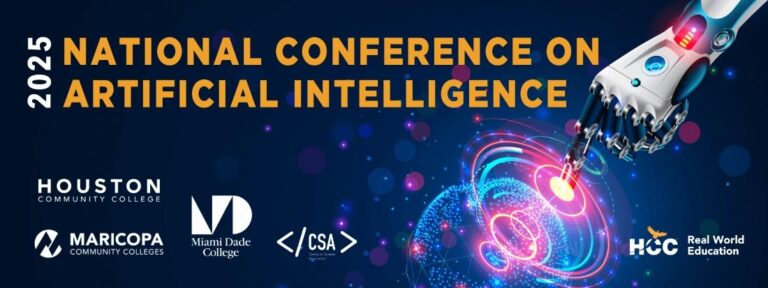As HoustonтАЩs education sector looks toward the future, artificial intelligence (AI) is rapidly becoming a transformative force in classrooms, administrative processes, and student engagement. In 2025, educators, administrators, and policymakers in the region face both exciting opportunities and challenges as they integrate AI technologies into their institutions. Nucamp.coтАЩs comprehensive new report, “The Complete Guide to Using AI in the Education Industry in Houston in 2025,” offers an in-depth exploration of the latest AI tools, implementation strategies, and their impact on learning outcomes. This guide aims to equip HoustonтАЩs education stakeholders with the knowledge needed to navigate the evolving landscape and harness AIтАЩs full potential to enhance teaching and learning experiences.
Emerging AI Technologies Transforming Houston Classrooms
Houston classrooms are witnessing a rapid integration of AI technologies designed to personalize learning experiences and enhance student engagement. Tools such as intelligent tutoring systems and adaptive learning platforms are enabling educators to tailor lessons to individual needs, thereby fostering deeper understanding and improved academic outcomes. Additionally, AI-powered analytics provide real-time insights into student performance, allowing teachers to identify learning gaps and intervene proactively. The fusion of these technologies is not only streamlining administrative tasks but also revolutionizing pedagogical approaches across the city’s diverse educational institutions.
Among the most impactful innovations are AI-driven virtual assistants and augmented reality (AR) applications that bring abstract concepts to life, particularly in STEM subjects. Educators in Houston are increasingly adopting these resources to break down complex topics and spark curiosity. Below is a snapshot of key AI tools currently reshaping classrooms:
- Smart Content Creation: Automated generation of customized quizzes and study materials
- Virtual Proctoring: AI-enabled monitoring to ensure academic integrity during remote exams
- Language Processing Tools: Real-time translation and speech recognition for multilingual classrooms
- Predictive Analytics: Forecasting student success and dropout risks
| Technology | Function | Benefit |
|---|---|---|
| Intelligent Tutoring Systems | Personalized assistance | Improved student retention |
| AR Learning Modules | Immersive content delivery | Enhanced engagement and comprehension |
| AI Analytics Dashboards | Performance tracking | Data-driven teaching strategies |
Integrating AI Tools to Enhance Student Engagement and Learning Outcomes
HoustonтАЩs educational institutions are pioneering the integration of AI-driven platforms that actively boost student participation and tailor learning experiences to individual needs. Intelligent tutoring systems, powered by adaptive learning algorithms, dynamically adjust content difficulty based on real-time performance, ensuring learners remain both challenged and supported. Moreover, AI-enabled chatbots and virtual assistants provide instantaneous feedback, fostering a more interactive and responsive classroom environment. Institutions report marked improvements in retention rates and academic performance, confirming that these tools are reshaping traditional pedagogical approaches.
Schools leverage a diverse suite of AI technologies, including:
- Predictive analytics to identify students at risk of falling behind.
- Gamification engines that transform lessons into engaging, game-like scenarios.
- Natural language processing tools facilitating real-time essay grading and language learning.
The impact is quantifiable, as illustrated below:
| AI Tool | Engagement Increase | Improved Test Scores |
|---|---|---|
| Adaptive Learning Platforms | 35% | 22% |
| AI Chatbots | 28% | 18% |
| Predictive Analytics | 31% | 20% |
Addressing Ethical Considerations and Data Privacy in Educational AI
As AI becomes an integral part of educational systems in Houston, safeguarding student data and ensuring ethical usage have come to the forefront of institutional priorities. It is essential for educators and administrators to implement strict data governance protocols that align with both local and federal regulations like FERPA and COPPA. These protocols should encompass transparent data collection methods, explicit consent forms for students and parents, and rigorous encryption standards to protect sensitive information from unauthorized access or breaches.
Moreover, ethical AI deployment requires continuous monitoring to avoid biases and unfair treatment within automated learning tools. Schools are adopting frameworks that include:
- Regular algorithm audits for fairness and accuracy
- Inclusive design processes involving diverse stakeholder feedback
- Clear accountability measures for AI decision-making outcomes
- Ongoing training sessions for educators on ethical AI use
| Ethical Concern | Mitigation Strategy | Result |
|---|---|---|
| Bias in AI grading | Algorithm audits and diverse data sets | Fairer assessments |
| Student privacy violations | Encrypted data storage & clear policies | Enhanced trust and compliance |
| Lack of transparency | User-friendly AI impact explanations | Empowered educators and students |
Practical Steps for Houston Educators Adopting AI in Curriculum Design
Houston educators preparing to integrate AI tools into their curriculum design should begin by identifying subject areas where AI can offer the greatest impact. Leveraging adaptive learning platforms and AI-driven assessment tools can enhance personalized education, catering to students’ individual learning paces and styles. Collaborating with technology experts and participating in professional development workshops focused on AI application ensures educators remain proficient and confident in their approach. Additionally, incorporating AI ethics discussions within the curriculum fosters critical thinking and digital responsibility among students.
Practical implementation also involves establishing clear data privacy protocols and obtaining necessary permissions to responsibly handle student information. To facilitate smooth adoption, Houston schools can benefit from pilot programs that allow small-scale testing of AI solutions before wider deployment. Below is a quick checklist for educators to streamline the AI integration process:
- Assess curriculum areas for AI suitability
- Engage in AI training and resources
- Ensure compliance with data privacy laws
- Initiate pilot programs for iterative feedback
- Encourage interdisciplinary projects using AI tools
In Summary
As HoustonтАЩs education landscape continues to evolve, the integration of AI stands poised to redefine teaching and learning throughout 2025 and beyond. From personalized learning experiences to streamlined administrative processes, AI technologies offer promising solutions to longstanding challenges faced by educators and students alike. This comprehensive guide from nucamp.co provides valuable insights and practical strategies for harnessing AIтАЩs potential in HoustonтАЩs classrooms, ensuring the city remains at the forefront of educational innovation. As institutions embrace these advancements, stakeholders must remain vigilant about ethical considerations and equitable access to fully realize the transformative power of AI in education.




